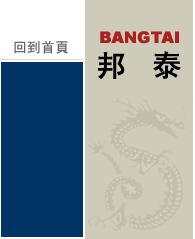国共对决的时候,林彪攻长春,围而不打,饿死那么多老百姓,100%绝对是战争犯罪。国际战犯法庭应该通缉林彪等指战员到庭受审,让他解释为什么违背宋襄公主义路线。
打天津也是流氓打法。
《孙子兵法》的影响,在商业上就表现为现在中国的山寨遍地,假冒泛滥,规矩全无的恶性竞争,混乱现象。
《孙子兵法》对人际关系的影响,直接导致了全社会整体的道德败坏。
我最近还注意到,西方人基本上都不知道伊索寓言里的《农夫与蛇》的故事,而同一故事却被选入中国小学课本,专门教导中国人,千万不要帮助落难者。来自欧美文化源头的《农夫与蛇》的教训在中国妇孺皆知,深入人心,已经成为中国民族性的一部分。
现代中国人把古代希腊和传统中国历史上的阴损,奸诈的所谓智慧,继承下来,发扬光大。
相比之下,西方社会却在接纳来自世界各地的落难者,受迫害者,和各种难民。中国(包括台湾)从不接纳难民。
其实,中国古代的哲学流派,有所谓“胜之不武”的警告。除了“宋襄公主义”讲究按照规矩较量之外,也还有武侠的"不能因为我可以打赢你,所以我就一定欺负你"精神。
打仗不能是为了战争而战争,要为了一个更高层次上的东西而开战。
《孙子兵法》的缺陷就在这里。
本来,战争可以是破坏性,也可能是建设性的。《孙子兵法》指导下打赢的战争,成为纯粹的破坏性战争。近年来,美国有学者认识到:成吉思汗指挥下的蒙古铁骑,给西方送去了法律至上的思想,直接催生了西方进入现代化的法治途径。
孙子兵法也是现在技术官僚主义的精神源泉。它不问是非对错,只管打仗。
就像丁健李彦红这些商人一样,虽然技术上也许不错,但在精神上,比人家狗哥创始人提倡的口头禅“不做坏事”,还有很远的一段距离。
而且,更有意思的是,百度在中国对付谷歌的办法,完全是《孙子兵法》式的流氓套路,比如经常到中宣部诬告谷歌,逼得谷歌成了失败的宋襄公。
苍天有眼,希望让我们有朝一日能够把丁健李彦红这些纯“技术商人”踩在脚下。:))
More options Oct 16, 10:39 pm
From: 褐锈 <enhu...@gmail.com>
Date: Fri, 16 Oct 2009 20:39:03 -0700 (PDT)
Local: Fri, Oct 16 2009 10:39 pm
Subject: Re: 《孙子兵法》
Reply | Reply to author | Forward | Print | Individual message | Show original | Report this message | Find messages by this author
那篇采访录有几段,我们在这里贴,译者说得很清楚。受东西方教育(从小)的人的区别
很明显。这哥们很厉害。在中国和香港都呆过很久,对中国算是了解的了。他翻译的《易
经》本来去年就该出版了,不知为什么还没上市。《道德经》计划2010年出版。
他翻译的书目在这里有:http://en.wikipedia.org/wiki/John_Minford
好像翻译了金庸的好几部书。
他翻译的《孙子兵法》的前言可以在这里读到:
http://books.google.com/books?id=oRY2RYkx9DYC&printsec=frontcover&dq=...
绝对不是陈腔滥调。
下面是他被采访时说的话,很有见地。
But I also find much in the book that is frankly unacceptable! It
proposes what is to me an insidiously calculating approach to human
relations, one which is directly contrary to many of the fundamental
humanistic values that I uphold. All the talk is of manipulation, of
using every situation to one's advantage. The consequent accumulation
of personal power, and the attainment of psychological mastery, are
goals in themselves. For me this is a distortion of the true Taoist
vision. It is a distortion that one finds quite commonly in the
literature of the late Warring States period. There is no great
distance in this respect between Sunzi and Hanfeizi, the Chinese proto-
fascist.
I can relate this to ways of functioning with which I am all too
familiar from my close encounter with contemporary Chinese society. I
spent most of the 1980s either in China, or close to China (in Hong
Kong), and was obliged to come to terms with some of these darker
aspects of Chinese social behaviour and thinking. You can find much of
this collected in a book I edited at the time (with my friend Geremie
Barmé) called Seeds of Fire. This was published in the USA by Hill &
Wang, a branch of Farrar Strauss. Although at the time I had not even
read Sunzi, a great deal in the book can be connected with Sunzi's way
of thinking (and his descendants in Chinese culture). It is what the
Chinese-American social-historian Sun Longji calls the Deep Structure
of Chinese Culture. One of its products is what the Taiwan
intellectual Bo Yang calls the 'Ugly Chinaman'.
So, when we read this material, by all means we should take in its
insights; but I feel quite strongly that we need to keep a critical
perspective. I am against any sort of uncritical reading.














